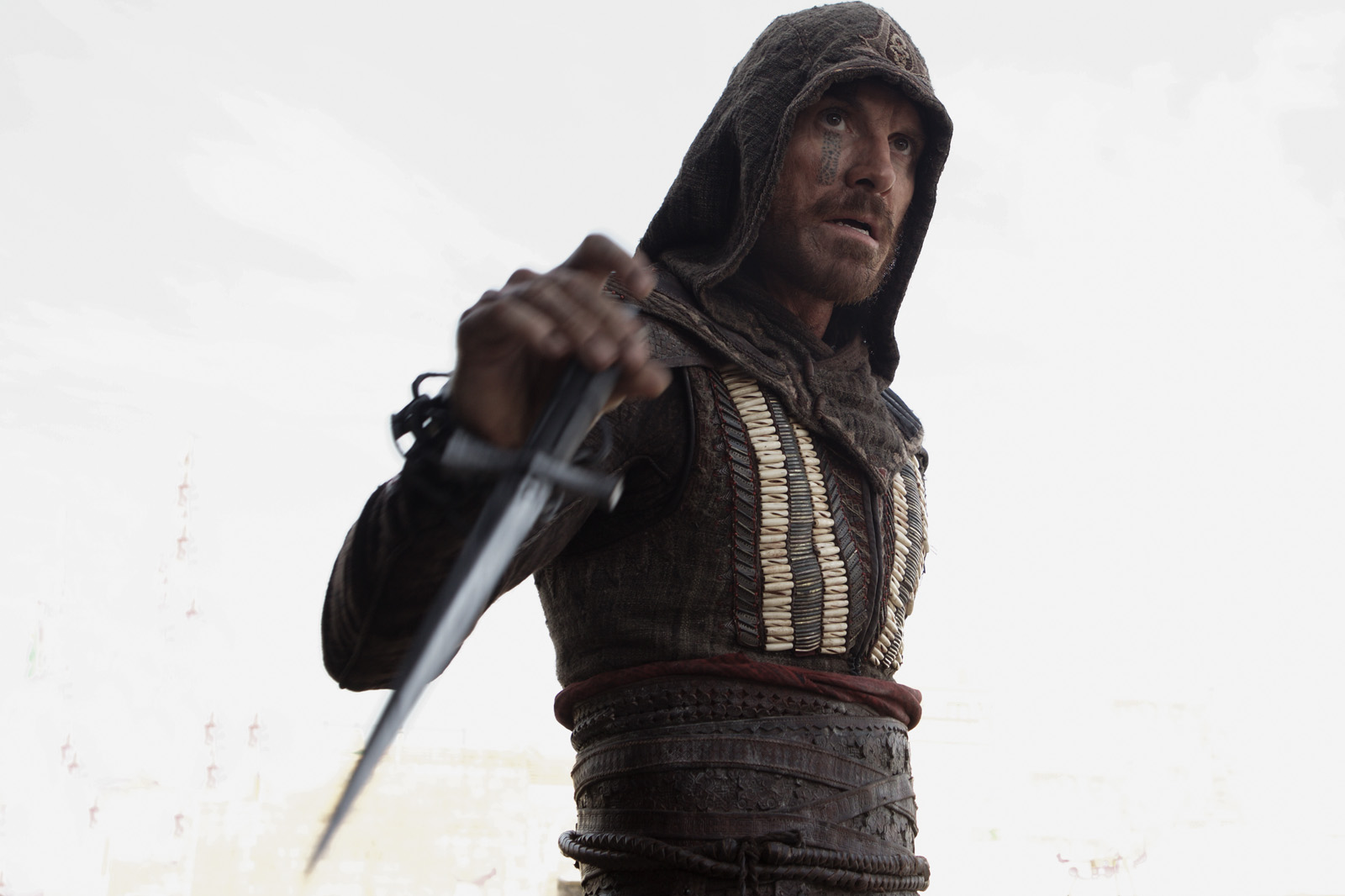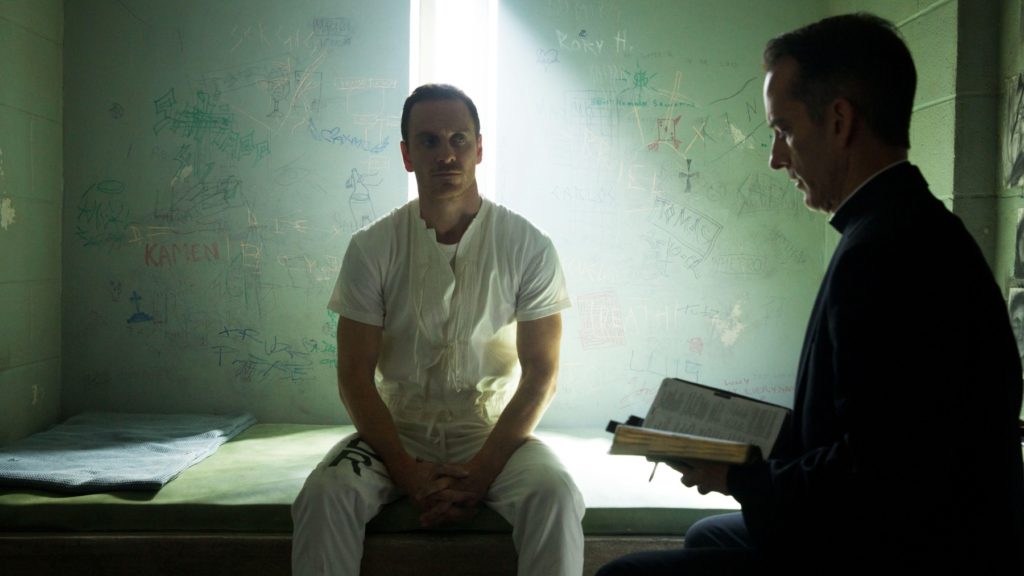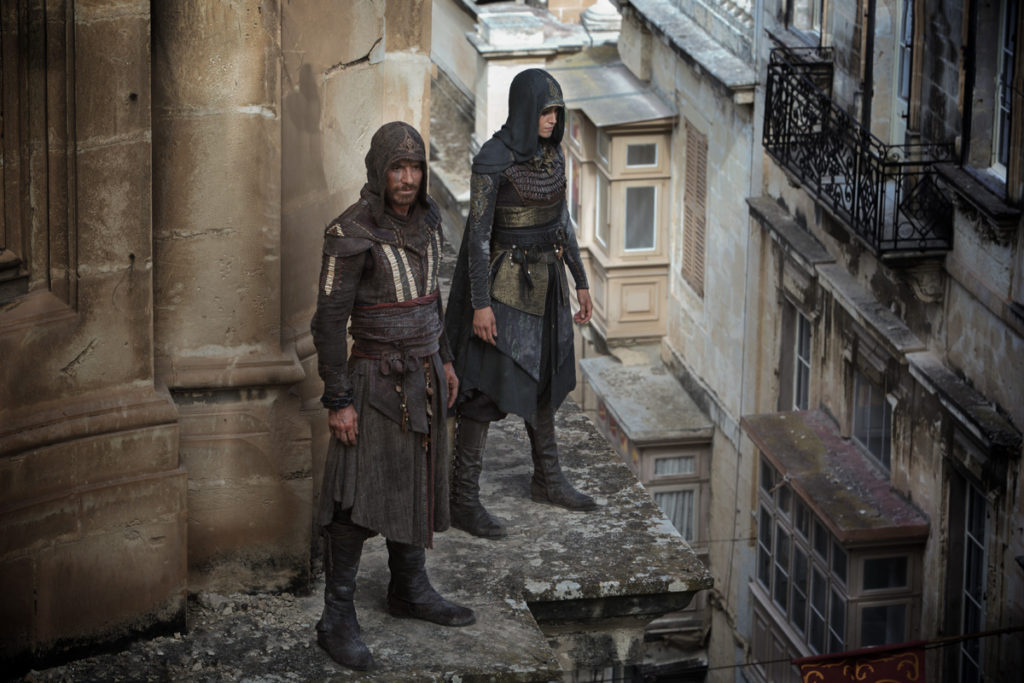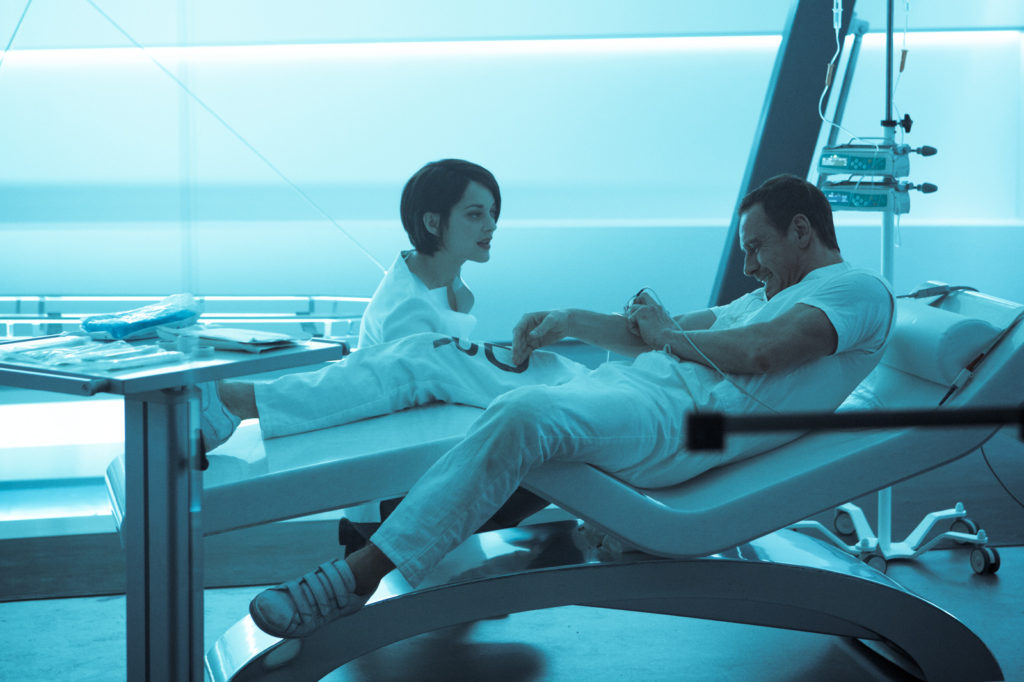Fassie Fumbling in the Dark: 8 Facts About the Assassin’s Creed Movie
Jan 4, 2017 • Karl R. De Mesa

Jan 4, 2017 • Karl R. De Mesa
Name me one big studio game-to-screen adaptation that was hands down good?
I’ve seen a lot of them. Yeah, The Legend of Chun-Li was abominable, even if the 1994 StreetFighter movie was a guilty pleasure. I even watched the 2009 Tekken adaptation with quite high hopes. And I just found out they made a sequel from it. No, don’t watch either of those movies. They’re bad. And bad-bad, not bad-good. About the only exception I can think of is The Angry Birds Movie. I lolled through that, as the kids would say.
As it stands, some of the fan-made web series stuff stands higher than most, and in the case of Mortal Kombat Legacy, has more storytelling groove and understanding of character development than the original celluloid franchise.
Assassin’s Creed fares no better. Which is a letdown, considering they’ve had like nine standalone AC games of totally rich source material to draw from, plus around 11 novelizations, Yves Simoneau’s excellent web films in Assassin’s Creed Lineage (okay, Ubisoft, you got that one right), and about as topnotch an A-list cast you can muster.
Michael Fassbender tries to squeeze the most out of his 2D modern character Cal Lynch but ends up just perennially furious, or trying to rein in said fury with results in the batshit crazy or creepy crazy range, all the time. I would be, too, if I had no idea what was going on with this shady science Abstergo/DNA/Ancestor crap. Fassie in his scenes as the 15th century Spanish assassin Aguilar de Nerha (Cal’s ancestor), is way better as spectacle who lets his parkour and hidden blades speak for him, but speaks in gruff cultish platitudes when he does.
Marion Cottilard as Sophia Rikkin does a bit better. She’s trying to “rid the world of violence” as the leading scientist of the Animus project. Rikkin conveys both sadness and zealous purpose, misguided though she may be as a Templar operative, in her role as The Man who would not only keep the edicts of order and peace while at once tyrannizing the populace with straight lines and behavior. Mostly though it seems like she’s just stumbling around her lab and trying to maximize her toys at the expense of the Abstergo prisoners’ DNA—like the unfortunate Lynch.
Jeremy Irons as Abstergo head honco Alan Rikkin and Michael K. Williams as the assassin Moussa are just wasted talent with their criminally short screen time; they also prognosticate vague utterances of doom and freedom when they do appear.
It’s a storytelling mess, which is what happens when you follow the AC games’ biggest blunders: trying to tell two main narratives without taking away the spotlight from either one (hello, Ubisoft, nobody likes the Abstergo sequences). You’ll be fumbling in the dark, specially if you don’t know anything about the games or haven’t played them at all.
You’ll be confused after the first 20 minutes. Heck, I was scratching my head half the time and I’ve played around five of the main standalone games, plus some of the non-standard ones. And I’m currently fumbling my way through AC Chronicles: China.
This movie is best enjoyed in the gorgeous period scenes of the Spanish Inquisition, where the stunning urban vista of Madrid and Toledocatch caught our 3D-glasses adorned eyes, the elegant and deadly parkour chases are nail-biting, and the war between the Assassins versus the Templars take bloody shape in very close quarters combat with staves, swords, and daggers.
The action is definitely well done. A wagon to wagon chase scene, with cliffhanger jumps and harrowing blade evasions had us gripping our armrests, and you could feel the grit of the medieval landscape as people died on the dusty roads or cobblestones. Ariane Labed as the medieval assassin Maria, one of Aguilar’s comrades, also projects both power and feline grace and steals scenes with her physicality. Again, too bad she’s underutilized.
The Abstergo DNA machine as a robotic arm is also a nice concept (Fassie can now mirror the assassin’s high-flying movements in the lab) whereas in the games you’re just strapped to a reclining dentist’s type chair. Oh, and the signature Leap of Faith in the game is still the visual overload that it is here.
Aside from all those sensory tricks and kicks, the movie is about as gorgeous as you could expect but as soulless as one of Ubisoft’s lesser, and rushed games. Which, turns out, is very very apt.
If you want to go out and watch it, however, here as 8 facts of the NON-SPOILER variety you should know that just might help you get through it, or at least appreciate it a tad bit more.

Marked by tragedy at an early age, Cal Lynch (Michael Fassbender) is a convict facing death by injection when he gains an unexpected second chance at life thanks to the mysterious workings of Abstergo Industries.
Through a revolutionary technology that unlocks the genetic memories contained in his DNA, Cal is sent back across the centuries to 15th Century Spain. There, he lives out the experiences of his distant relative, Aguilar de Nerha, a member of a secret society known as the Assassins. Transformed by the past, Cal begins to gain the knowledge and physical skills necessary to topple the oppressive Templar organization in 2016.
.
Cal Lynch and his ancestor Agular de Nerha are part of a bigger clandestine war between the Assassins and Templars. Framing each of the AC games is the Assassin/Templar conflict of today. The Assassins fight to protect free will, while the Templar Order craves power so they can impose order upon a docile population under a singular rule.
Released in 2007, the first Assassin’s Creed dropped players into the heart of the Crusades, imagining a world in which the bloody, centuries-long war between the Assassins and Templars had defined much of human history. Mixing historical fact and infusing it with beautiful conspiracy fiction, the AC series has transported players to the Italian Renaissance, the foundations of America during the Indian Wars, the golden age of piracy in the Caribbean, and in revolution era France.
Assassin’s Creed imagines a world in which neither one of these groups fully disappeared, instead waging a silent, centuries-long war with one another and deciding the course of real human history through their actions.
Many historical figures factor into the games, and the movie is no different, revealing Tomas de Torquemada, for example, as a Templar enforcer that the Assassins must stop, during the most brutal days of the Spanish Inquisition.
The Knights Templar was a real Christian order established and sustained for nearly two centuries during the Middle Ages. Officially sanctioned by the Roman Catholic Church, Templar membership included some of the most important and feared figures of the age, and the group held enormous power and influence until its dissolution in 1312. Its sudden disbanding at the height of its power led to a belief that the organization had simply gone underground, where it continued to exert its influence.

The Assassins and the Templars were both real groups whose philosophies were in diametric opposition, and whose embrace of secrecy led to much speculation about their motives. The Assassins are drawn from Hashashins of Nizari Islam, characterized as a secret order that followed a leader known as the Old Man on the Mountain. Over the course of 300 years, the Assassins killed hundreds of important targets, and in fact the word “assassin” originates from this group. The Crusaders, who form the backdrop to the first Assassin’s Creed game, found the clan particularly fearsome, and their legend was further embellished in Crusades stories told by Marco Polo.
In the game, the “creed” exemplifies the human will to freedom and the responsibility that comes to free other souls once you’ve been made aware of the mental shackles. It is spoken at the initiation of every assassin, and goes as follows:
Assassin Elder: Where other men blindly follow the truth, remember…
Assassin Initiate: Nothing is true.
Assassin Elder: Where other men are limited by morality or law, remember…
Assassin Initiate: Everything is permitted.
Assassin Initiate and Elder together: We work in the dark to serve the light. We are Assassins.

Cal Lynch, played by Michael Fassbender, is unaware that he is a descendent of several lines of prominent Assassins. Cal is also a career criminal who is rescued from his own execution by Abstergo Industries, the modern-day incarnation of the Templar Order. He is forced to participate in the Animus Project and relive the memories of his ancestor Aguilar de Nerha, an Assassin during the Spanish Inquisition.
.
In the Abstergo labs, once the Animus project has gone through a person’s DNA and dug up his assassin ancestors’ memories, that person usually absorbs the strength and skills of his predecessors, making him stronger, faster, and an all-around better killer. Cal Lynch’s captors learn this the hard way.
.
Director Justin Kurzel wanted veracity for the signature Leap of Faith of the assassins, where they jump from a very high location into the water or a bale of hay. Here’s how they did it for the movie.
Assassin’s Creed opens January 4, 2017 in all major Metro Manila cinemas.
All photos courtesy of Ubisoft Entertainment/20th Century Fox.
Karl R. De Mesa is a journalist and writer who co-hosts the combat sports podcast DSTRY.MNL and the dark arts and entertainment podcast Kill the Lights. His latest book is "Radiant Void," a collection of non-fiction that was a finalist in the Philippine National Book Awards.
Input your search keywords and press Enter.
